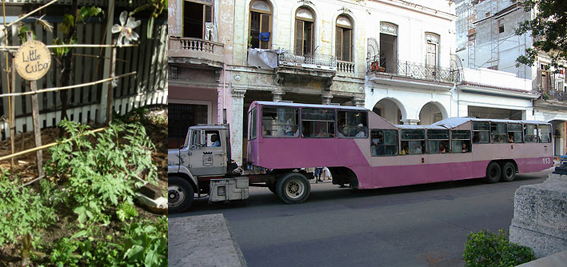Power of Community
These notes form a part of x-med-k. Media Ecologies workshop
Produced by the community solution organization, the film explores the peak oil crisis with focus on community based solutions that reflect the values of cooperation, conservation and curtailment. The film captures the free fall of Cuba's economy in early 90's with the fall of the Soviet Union and its turnaround using drastic measures to become self reliant. It demonstrates the role of community in dealing with acute challenges. Every aspect of cuban life was affected by the 'special period', but no change was as far reaching as agriculture. Cuba was forced to switch to survival agriculture from the green revolution practices it was accustomed to. A drastic effort to convert every piece of arable land to organic agriculture was begin. An urban agriculture movement resulted where every vacant lot in the city was converted into an orchard. Under urban gardening, idle plots of land were identified, cleaned and turned into gardens by the community. The people cooperating and caring about each other were the main factors for the turnaround. With sustainable practices Cuba found that it took 3 to 5 years to rehabilitate the soil again. To increase food production the government worked with farmers to find local solutions. The result was smaller farms and cooperatives with a high degree of privatization and autonomy. These were able to use sustainable practices in a much more efficient manner and created new ways of decentralized growth under a larger umbrella. With a more stable method of land distribution and ownership, thousands moved to rural areas. The impact was also felt in the education, housing, transportation and energy alternatives realms resulting in improvised solutions from the people. The case of Cuba is often used to demonstrate the power of simple steps taken at a community level.
The author shared this film with participants at the media ecologies workshop to bring out the role of community in a situation of catastrophe. However, there were concerns about the authenticity of the film and the biased depiction of the role of government. Bart, one of the participants at the workshop, who has also been to Cuba during this period shared this with everyone. Some other aspects discussed during this session were:
- Role of cooperation, conservation and curtailment in a situation of decline.
- The most appropriate balance between small clusters and larger systems for a reslient organisation structure.
- What would be an effective response in a drastic situation: How do we creatively use and respond to change!
- What are the questions we as a society can ask ourselves ?
- What would be the most effective sustainable practice in a different situation and context? For example how would Belgium handle such a situation?
